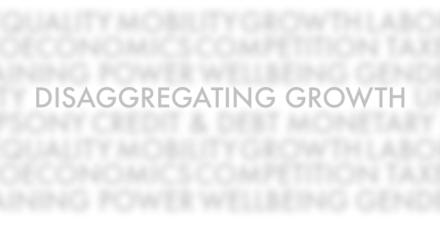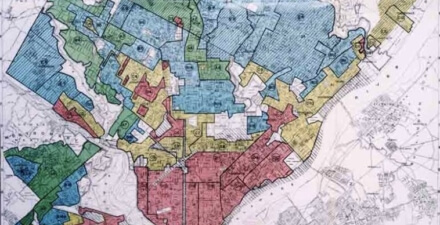How an individual or family experiences economic gains and losses can differ dramatically depending on where one lives—one’s geographic place in the United States. Economic mobility, economic growth, business dynamism, job opportunities, and other measures of economic prosperity can vary dramatically across different regions and communities. Equitable Growth seeks to better understand the reasons for these variations and explores what can be done to ensure that all Americans feel the benefits of economic growth regardless of where they call home.
Featured work
A place-based economic development strategy to foster rural U.S. prosperity
September 11, 2025
September 11, 2025
Federal and state governments can help solve the employment problems of people in distressed places to spur equitable growth
May 13, 2025
May 13, 2025
Green Energy Jobs in the US: What Are They, and Where Are They?
November 8, 2022
November 8, 2022
The inequitable consequences of ‘heat islands’ within the metropolitan areas of the United States and what to do about it
August 3, 2022
August 3, 2022
Is moving to a new place key to upward mobility for U.S. workers and their families?
February 14, 2022
February 14, 2022
Explore Content in Economics of Place229
Prisoner re-entry in Native American communities offers lessons of resilience and nationwide policy solutions
February 18, 2020
February 18, 2020
The logistics of a reparations program in the United States
February 18, 2020
February 18, 2020
Promote economic and racial justice: Eliminate student loan debt and establish a right to higher education across the United States
February 18, 2020
February 18, 2020
A plan for equitable climate policy in the United States
February 18, 2020
February 18, 2020
New measurement for a new economy
February 18, 2020
February 18, 2020
Encouraging banks to serve the credit needs of everyone
February 3, 2020
February 3, 2020
New measure of county-level GDP gives insight into local-level U.S. economic growth
December 16, 2019
December 16, 2019
New board member Mehrsa Baradaran brings expertise on economic inequality and the racial wealth gap
October 31, 2019
October 31, 2019
Equitable Growth CEO Talks All Things Economic Inequality in Recent Reddit “Ask Me Anything” series
October 21, 2019
October 21, 2019
School segregation undermines U.S. economic mobility and dynamism
October 15, 2019
October 15, 2019
U.S. school segregation in the 21st century
October 15, 2019
October 15, 2019
Criminal record information and access to opportunity: Using the 2010 CORI reform as a natural experiment
August 23, 2019
August 23, 2019
Explore the Equitable Growth network of experts around the country and get answers to today's most pressing questions!


















